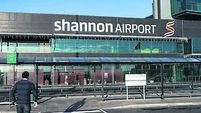Should Tom Savage quit RTÉ?: No
We believe that the people of Ireland should be served by a broadcasting sector which is vibrant, competitive, entertaining and informative. The sector should produce programme material of the highest quality with a strong focus on the public interest and the provision of indigenous programming.
In this regard, the establishment of RTÉ by Fianna Fáil in 1960 was an important step forward. The organisation’s considerable achievements in news and current affairs broadcasting are sometimes taken for granted. Over time, RTÉ has worked hard to develop a bond of trust with the people of Ireland as a conduit of information, as a provider of entertainment, and as medium for the exchange of ideas.
















